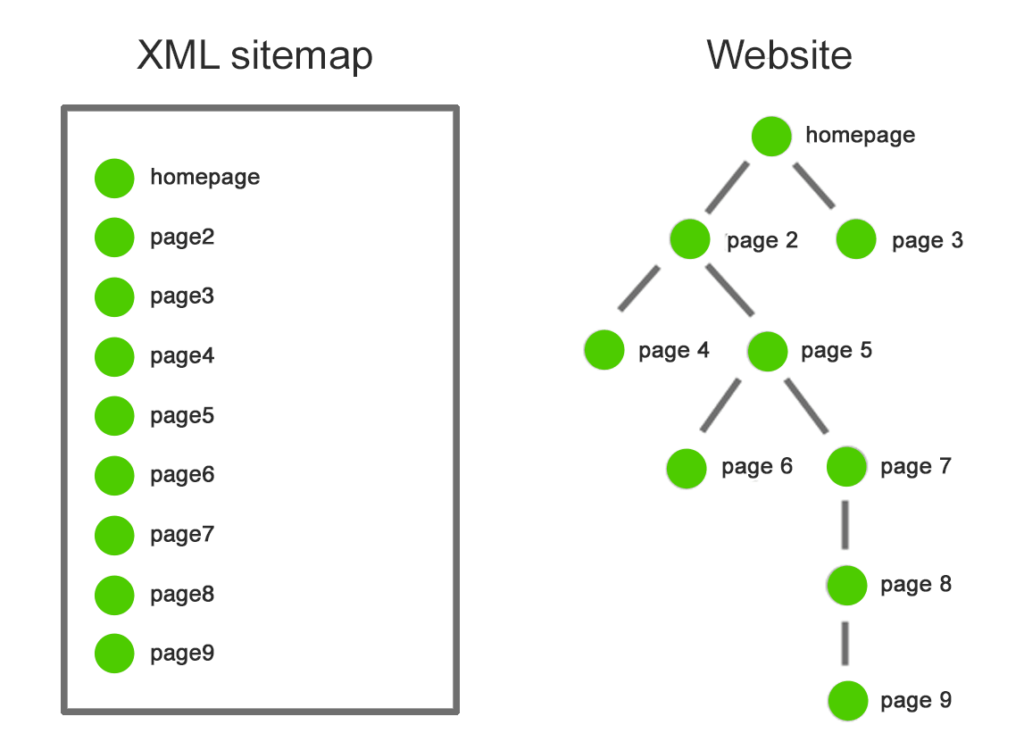What is technical SEO is usually asked by website owners and marketers as it plays a very crucial role in search engine ranking.
Even though we enjoy discussing the newest and most innovative digital marketing strategies, SEO has been and will continue to be a solid pillar.
However, the majority of digital marketers divide their efforts among several tasks while creating a thorough SEO plan. As we know, picking competitive keywords to target is a crucial stage.
Your next objective might be to incorporate these into bits of material of a high caliber. Building backlinks is also important at the same time.
These SEO tactics, both on and off the page, are essential components. To establish effective SEO, technical SEO is also crucial. In this guide, we are going to discuss what technical SEO is in detail.
What are the 3 Pillars of Technological Optimization?
Technical SEO focuses on enhancing a website’s technical characteristics to raise the ranking of its pages in search engines. The three pillars of technological optimization are speed improvement, crawler ease, and search engine friendliness.
Why Is Technical SEO Important?
The “ideal” technical SEO for your website can’t be achieved with a single all-encompassing plug-in or hack. However, there are several actions you can take that when taken together, can greatly enhance your technical SEO and provide you an advantage over the competition.
Why do you want to put technical SEO first? Because technical SEO is what informs search engines like Google that your website is valuable. Because of this, you may receive a higher ranking from search engines.
Technical SEO means making sure your website complies with the requirements; after all, its main goal is to provide users with the best results for their chosen keywords.
Users of Google were more inclined to direct their search queries elsewhere if Google gave preference to websites that were slow, unresponsive, or difficult to navigate. So, if your website loads quickly, has no broken links, and is secure, Google’s crawlers will give it a boost in search results.
This has clear justifications. Your users will be more satisfied and delighted if you have a solid technical basis for your website
What Is Technical SEO And Its Best Practices?
Now you know what is technical SEO, let’s look at the recommended practices to adhere to. The list below can be used to conduct your own technical SEO audit.
Make Sure Your Website Is Responsive To Mobile Devices
Making sure your website is mobile-friendly is crucial given the growing number of individuals using smartphones to access the internet. Making sure that your website loads quickly on mobile devices and employing responsive design are examples of this.
This is a significant issue because more people are currently using their smartphones to browse the internet. Because of this, websites that provide an excellent mobile surfing experience are given preference by Google and other search engines. You can now improve your mobile website thanks to the testing that search engines like Google have made available.
Use A Clear, Basic Website Design
Search engines can better grasp the links and hierarchy between the many pages on your site when your website’s structure is clear and uncomplicated. By doing this, you can make it simpler for search engines to index and crawl your information. Make your text easy to scan and understand for readers by using header tags (H1, H2, H3, etc.).
For Images, Use Alt Text
When an image cannot be displayed, alt text serves as a written description of the image. In addition to raising your search engine rankings, it aids search engines in comprehending the contents of your image. To make your images more likely to appear in image search results, use descriptive, keyword-rich alt text to assist search engines to comprehend the content of your images.
Utilize XML Sitemaps
An XML sitemap is a file that contains a list of all the pages on your website together with details about each one, such as when it was most recently updated and its importance. Search engines can better crawl and index your pages if they can grasp the structure of your website thanks to XML sitemaps.
Utilize Robots.txt
A text file called robots.txt instructs search engines which files or pages on your website shouldn’t be crawled. If your website contains pages that are not relevant to search engines or if you wish to stop search engines from crawling sensitive or private data, this can be handy.
Use Canonical Tags
When there are many versions of a page with duplicate content, canonical tags are used to identify the preferred version. By doing this, you may avoid problems with duplicate content and make sure that the right version of your site is being indexed by search engines.
Implement Structured Data
Structured data is a format that is specified for presenting details about a webpage and its content. Search engines can better grasp the content of your pages and display rich snippets in search results by leveraging structured data.
Apply HTTP/2
An updated version of the HTTP protocol called HTTP/2 is quicker and more effective than HTTP/1.1. Your website’s performance and speed can be enhanced by implementing HTTP/2, which may also help your search engine rankings.
Utilize Lazy Loading
Lazy Loading holds off on loading images or other content until it is required. This can make your website run faster and operate better, especially on mobile devices with poor connections.
Employ A Content Delivery Network (CDN)
A global network of servers known as a CDN allows users to receive web content based on their location.
Utilizing a CDN will help your website run faster and function better, especially for users who are far from your server.
Optimize The Setup Of Your Servers
Your website’s speed and functionality can be enhanced by properly setting up your web server. This involves making smart hosting provider selections, utilizing a quick and dependable server, and database optimization.
Include SSL Certificate To Your Website
Visitors to your website are given additional protection by SSL (secure sockets layer) certificates. Data is protected, identities are verified, and client trust is increased. Therefore, by investing in an SSL certificate, you will increase the security of your website in addition to your SEO position. If you don’t already have an SSL certificate, get one right away. It’s a no-brainer.
Final Words
Technical SEO is the basis of website ranking on google. Make your website technical SEO optimized. Otherwise, Search engines will penalize your sluggish or glitchy website, which will prohibit you from reaching your digital marketing objectives.
So, we urge you to seriously consider technical SEO. Check your website for errors and put some of the above advice into practice. The technical SEO of your website will ultimately be much improved by them.


